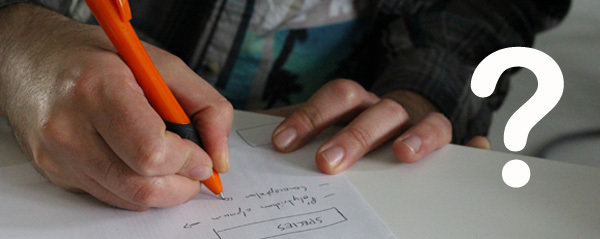
Living and Research in Germany - FAQ
Funding and tuition
Funding for IMPRS MolPlant doctoral researchers comes from the MPI-MP, the University of Potsdam and other institutions that our Faculty members are affiliated with. PhD positions are fully funded and are awarded for 3 years, with a possibility for extension. The PhD contracts include German public health insurance and social insurance, and are subject to German income tax. The monthly net income after the deduction of taxes and payments into health and social security insurance is roughly 1,900-2,000 EUR . The details of the PhD contract may vary, depending on the institution that is primarily responsible for the contract (MPI-MP, MPI-KG, University of Potsdam, or IGZ). Funding for scientific consumables, the attendance of conferences, seminars, or lab visits is provided by the research groups that the doctoral project is based in.
There are no tuition fees for doctoral candidates at the MPI-MP except for the Semester Fee charged by the University of Potsdam for immatriculation. There are two semesters per academic year in Germany, the Winter Semester (October to March) and the Summer Semester (April to September). More information about the semester fee and registration as doctoral student with the University can be found at University Enrolment.
The great majority of the PhD researchers at the MPI-MP (including IMPRS members who are funded by the MPI-MP) receive a Max Panck Support Contract for doctoral researchers. The Max Planck Support Contract is taxed and includes German public health insurance and social security contributions. The net income (after taxes and all other deductions) of doctoral researchers with a Max Planck Support Contract is rougly 1,900-2,000 EUR per month.
International PhD researchers may need to apply for a visa before coming to Germany, depending on their nationality. Information on who needs a visa and which visa is applicable is given on the FAQ Visa for Germany website of the German Federal Foreign Office. In general, PhD researchers with a Max Planck Support Contract for doctoral researchers come to Germany on a Researcher Visa.
Students who plan to come to Germany on a Student Visa need to show that they have sufficient financial means through a scholarship, stipend, or private funding to support themselves (amount as of January 2023: at least 11,208 EUR per year, i.e. 934 EUR per month). Please visit the DAAD website for more information about proof of financial resources for a study visa.
Housing and living costs
Most of our PhD researchers find a place to live in private accommodation in Potsdam or Berlin. This may be very different from what you are used to in your home country!
Housing /accommodation costs will likely be your largest monthly expense. Our junior scientists either share a flat with peers or find a small apartment for themselves. Depending on this, housing costs can range from under 600 EUR to 800 EUR per month or more. There are a few privately-run places in Potsdam that offer furnished student apartments. The monthly rent for these "all inclusive" places may be a bit more costly - please explore the links on the left. Please note that doctoral students are not eligible for accommodation in student housing run by the Potsdam Student Services (Studentenwerk Potsdam). The website of the University of Potsdam Welcome Center is a good place to start informing yourself about housing opportunities in Potsdam and Berlin (please note, however, that they will not be able to find accommodation for you).
The following two websites curated by the DAAD give a rough overview of other living costs:
DAAD - Costs of education and living
Study in Germany - Cost of living
The University of Potsdam also provides a rough overview of living costs: UP - Living costs at a glance
Note that the estimates given on all the above websites are for a "student life style", i.e. low cost living of a single person, often in shared flats (in German: Wohngemeinschaft) where the rent for the flat is shared, and everyone has their own room and shares kitchen, bathroom and other facilities.
Campus life
The MPI-MP and IMPRS MolPlant graduate students are embedded in a vibrant research community. More than 70 doctoral candidates study under the guidance of our faculty, their groups, and departments. The Potsdam Science Park in Potsdam-Golm hosts three Max Planck Institutes, two Fraunhofer Institutes, the University of Potsdam, and a centre for start-up companies. This provides an excellent infrastructure for modern cross-disciplinary training and you will have many opportunities for discussion and exchange of ideas.
The Potsdam Science Park management team provides information and services to the community. Their language courses allow you to develop your German skills, and their PSP Academy organizes workshops on entrepreneurial skills and career-planning.
Sports and Culture
Several sports and other cultural activities take place on campus - you can join the Institute's football team or enjoy a game of beach volleyball, for example. The Science Park Potsdam-Golm is located in Potsdam, an attractive city with a population of 150,000. Potsdam is home to the famous Sanssouci Palace, many lakes and beautiful parks, and offers a wealth of cultural life. Within Potsdam, it is easy to get around on foot and by bike or public transport. Berlin, the multicultural capital of Germany, is only a stone's throw away from Potsdam and well connected by public transport.